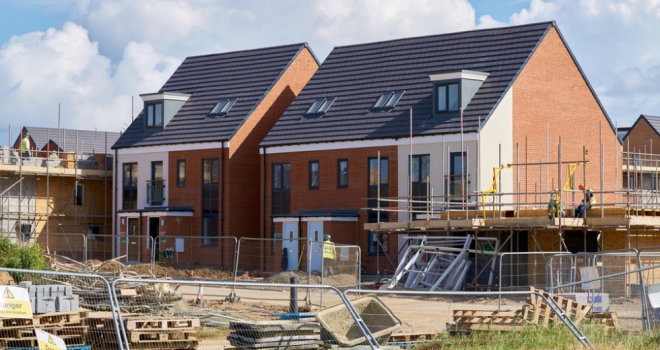
“The UK has failed to meet housing targets, earnings have failed to keep up with house price growth, and mortgage loan-to-value ratios are more stringent”
– Jennet Siebrits – CBRE
The Barker Review of Housing Supply, which was published in March 2004, recommended increasing the delivery of new homes in England by between 70,000 and 120,000 each year to help lower the rate of house price growth and mitigate issues of market volatility, reduced affordability, and macroeconomic instability.
However, a new research report by real estate advisor, CBRE, entitled ‘Twenty years on from the Barker Review: Is the housing market still broken?’ has revealed that the UK has failed to deliver between 1.5 and 2.5 million homes, relative to the targets recommended in the initial review.
Since the initial review, analysis shows that the UK has undelivered between 1.5 and 2.5 million homes, and while real average annual house price growth has lowered, affordability has worsened. The average house price-to-earnings ratio across England has increased from 5.12 in 2002, to 8.28 in 2022, according to the Office for National Statistics – prompting a fall in the number of owner-occupiers in the housing market.
Since 2003, the UK’s average house price has grown from £139,000 to £302,000. The average mortgage payment has increased from £637 per calendar month to £1,327, with mortgage rates as a percentage of income rising from 35% to 44%. In addition, the average deposit required has increased from £45,800 to £107,800.
Jennet Siebrits, Head of UK Research at CBRE, said: “The reality is, in the 20 years since Kate Barker’s report, a perfect storm has materialised whereby delivery and affordability of housing has worsened considerably. The UK has failed to meet housing targets, earnings have failed to keep up with house price growth, and mortgage loan-to-value ratios are more stringent.”
“Many interventions to tackle housing supply and affordability are regularly debated in the public realm. So, in our latest report and the series of papers that accompany it, we consider several of these possible solutions and evaluate whether they are worth pursuing and how we might fix our broken housing market.”
Siebrits noted many of the recommendations from Kate Barker’s report were centred around making it easier and faster to gain planning permission to boost development activity.
However, CBRE’s report reveals planning decision speed has continuously slowed in the last decade. Overall, almost 60% of major planning applications were decided within 13 weeks in 2012, but this has fallen to just 20% in 2023.
